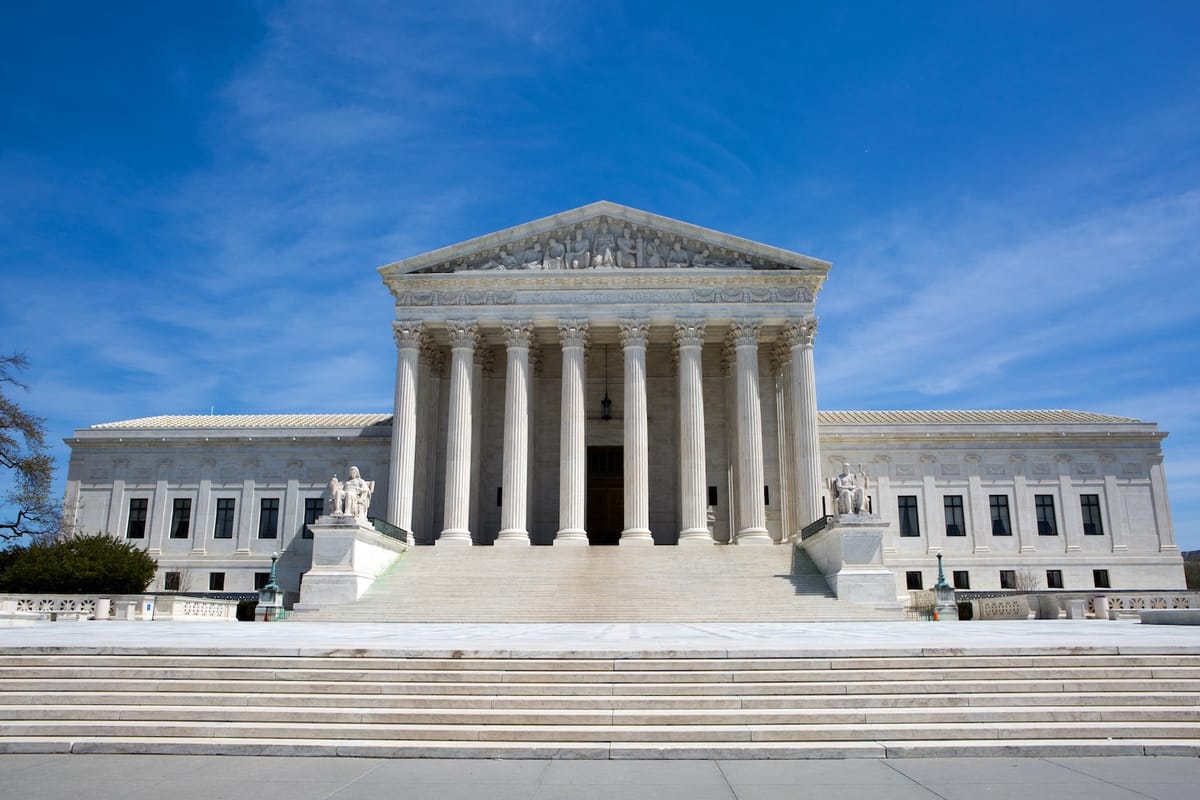

A Landmark Decision on April 7
The Supreme Court delivered a significant ruling on April 7, granting President Donald Trump’s administration the authority to resume deportations of suspected Venezuelan gang members under the Alien Enemies Act of 1798. The decision overturned temporary restraining orders issued by U.S. District Judge James Boasberg, who had blocked the administration’s efforts to deport individuals identified as part of the Tren de Aragua gang. This opinion from the high court marks a pivotal moment in the ongoing battle over immigration enforcement, affirming the executive branch’s power in national security matters.
The ruling came after a swift appeal from the Trump administration, which argued that Boasberg’s orders infringed on the president’s constitutional authority under Article II to conduct foreign policy and protect American citizens. The Supreme Court’s decision vacated the lower court’s injunctions, stating that deportees’ due process rights could be addressed through habeas corpus petitions, a legal avenue the plaintiffs had previously abandoned. This procedural clarification shifted the focus from judicial oversight to executive discretion, a move celebrated by administration officials as a restoration of order.
The Alien Enemies Act in Action
At the heart of this case lies the Alien Enemies Act, a law enacted over two centuries ago to allow the president to detain or deport noncitizens from hostile nations during times of war or declared invasion. The Trump administration invoked this rarely used statute to target members of Tren de Aragua, a Venezuelan gang designated as a foreign terrorist organization due to its alleged involvement in violent crimes across the United States. The proclamation, signed by Trump on March 15, labeled the gang’s presence an ‘invasion,’ triggering swift deportation flights to El Salvador.
Despite Boasberg’s initial orders to halt these removals, two planes carrying approximately 238 Venezuelan nationals landed in El Salvador on March 16, where they were transferred to the Terrorism Confinement Center. The Supreme Court’s ruling upheld the administration’s actions, rejecting claims that the deportations lacked sufficient legal grounding. Acting U.S. Solicitor General Sarah Harris emphasized to the justices that the case raised ‘fundamental questions about who decides how to conduct sensitive national-security-related operations in this country—the President, through Article II, or the Judiciary, through temporary restraining orders.’
The decision also addressed logistical concerns, noting that the administration had not defied Boasberg’s orders intentionally, as the flights were already airborne when the injunction was issued. This practical reality, combined with the court’s legal reasoning, solidified the administration’s position that national security trumps judicial micromanagement in such scenarios.
Legal and Political Implications
The Supreme Court’s 5-4 ruling underscored a deep divide among the justices, with Justice Sonia Sotomayor authoring a dissent joined by Justices Elena Kagan and Ketanji Brown Jackson, and Justice Amy Coney Barrett partially concurring. Sotomayor criticized the majority for acting with ‘bare-bones briefing, no argument, and scarce time for reflection,’ echoing her concerns from a recent education grants case. However, the majority’s focus remained on procedural propriety, affirming that challenges to deportation must be filed where detainees are held - in this case Texas rather than Washington, D.C.
Politically, the ruling bolstered Trump’s immigration agenda, a cornerstone of his second term. Attorney General Pam Bondi hailed it as a ‘landmark victory for the rule of law,’ asserting, ‘An activist judge in Washington, DC does not have the jurisdiction to seize control of President Trump’s authority to conduct foreign policy and keep the American people safe.’ Trump himself took to social media, posting, ‘The Supreme Court has upheld the Rule of Law in our Nation by allowing a President, whoever that may be, to be able to secure our Borders, and protect our families and our Country, itself.’
A Victory for Border Security
For Americans concerned about border security, the Supreme Court’s decision reinforces the federal government’s ability to act decisively against perceived threats. The administration’s partnership with El Salvador, which accepted the deportees for a reported $6 million, exemplifies a pragmatic approach to removing dangerous individuals. Homeland Security Secretary Kristi Noem’s visit to El Salvador’s mega-prison on March 26 underscored this commitment, as she inspected the facilities holding the deported Venezuelans.
The ruling also highlights the judiciary’s limits in overseeing executive actions tied to national defense. As the administration continues to deport gang members—over 200 were removed on March 15 alone—the Supreme Court’s stance ensures that such efforts face fewer immediate roadblocks. For taxpayers and law-abiding citizens, this translates to a stronger emphasis on public safety over prolonged legal battles.
Dues are $12 per year. Member benefits:
✅ Ad-Free Website Viewing
✅ Advocacy for Republican Seniors
✅ 120+ Senior Discounts
✅ Member Only Newsletters